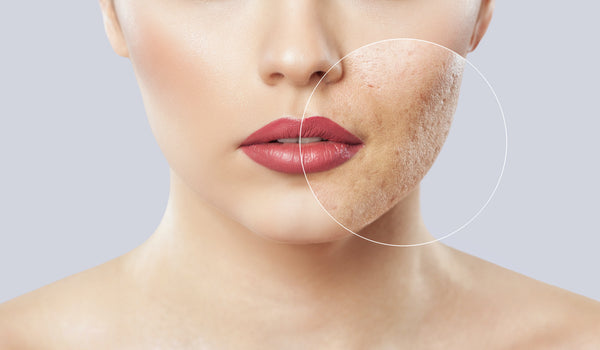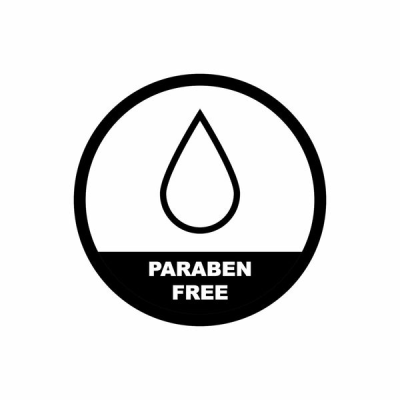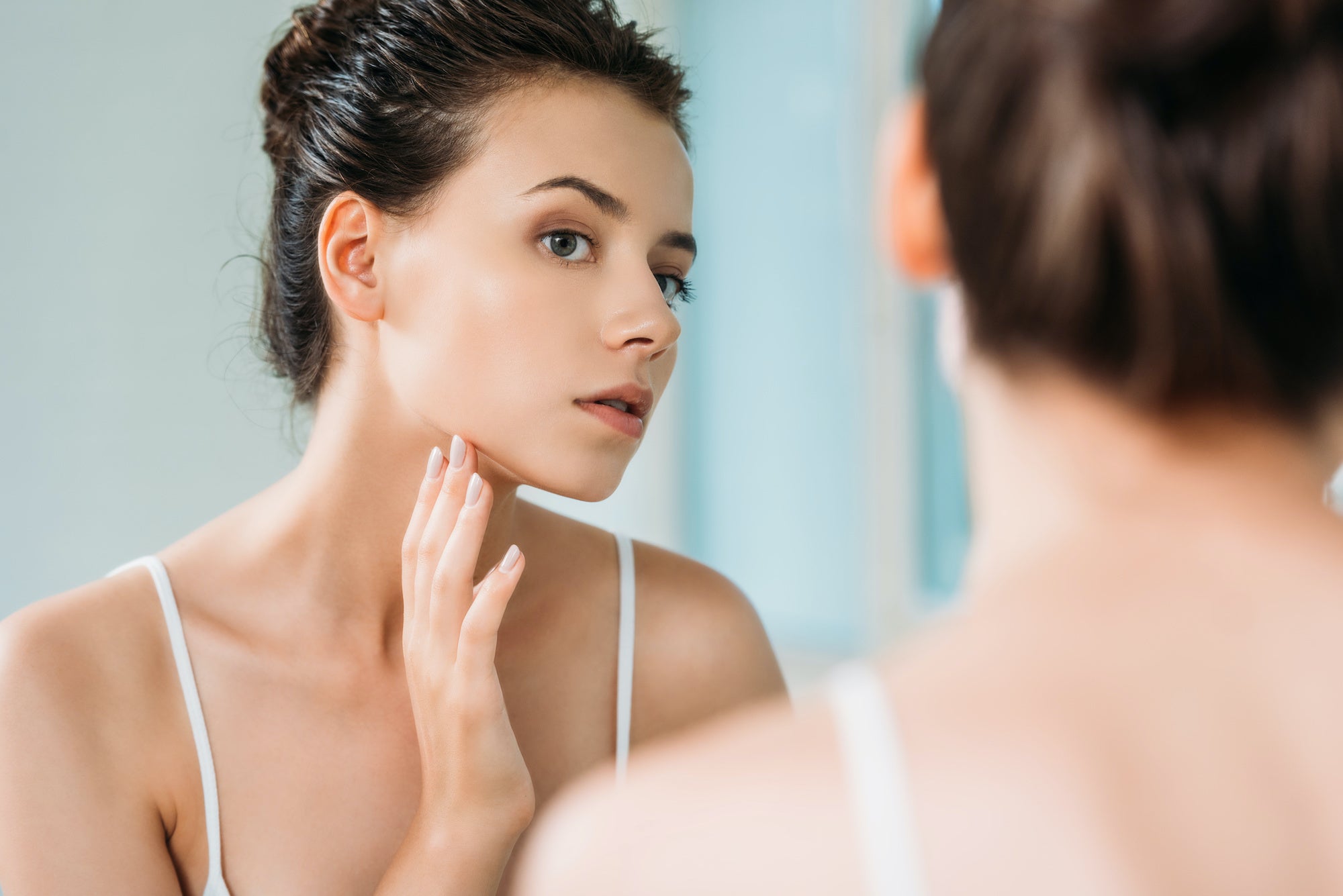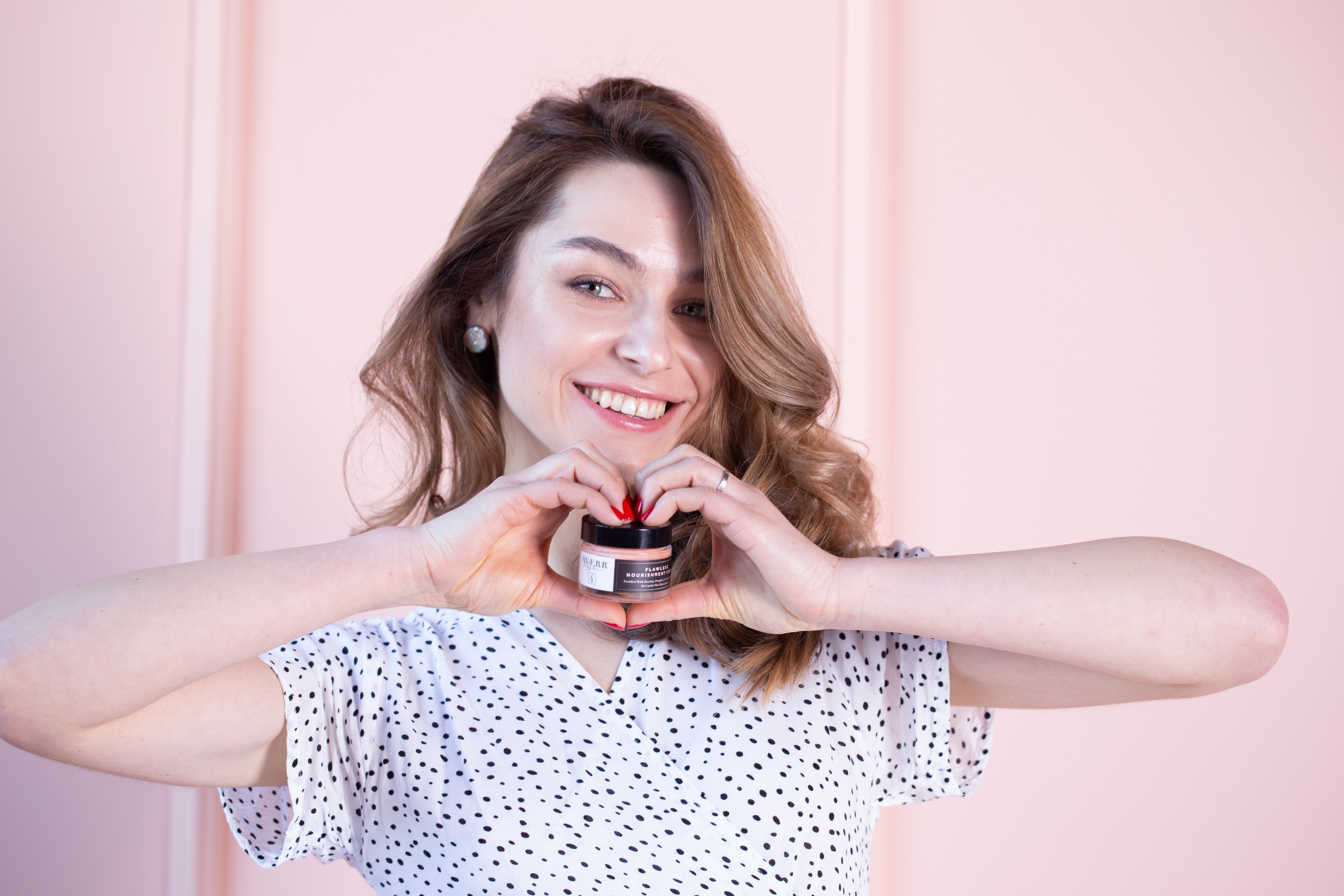
How to Prevent Your Makeup from Causing Acne
Finally, at the end of the day, you are ready to take off your makeup. As you begin to cleanse your face, you notice the first signs of a brand-new batch of zits. Loathing the sight of it, you wonder, “Could my makeup be causing me to break out?!”
For many years, people have considered makeup the main culprit to all skincare woes. You’ve probably heard it said that makeup causes acne, but is it true? Let’s find out!
Learn the Science Behind It
An adage says, "An ounce of prevention is worth a pound of cure." This seems to reign true for acne. What you put on your face can impact it for the good or...not so good. So does this mean that wearing makeup is a bad idea?

For many people, makeup is a way to cover up pre-existing marks, scars, and zits. While it can be a wonderful thing, you have to be careful about which type of makeup you use. The wrong kind can provoke a breakout.
Acne specifically caused by makeup is called acne cosmetica. With this, you will commonly see small bumps on the forehead, chin, cheeks, or around the lips. You may also see small whiteheads.
Now before you start self-diagnosing, this type of acne is not easily detected. Signs of acne cosmetics can show up anywhere from a day to 6 months later.
The key to avoiding it is a good skincare routine, a healthy makeup routine, and always paying attention to the ingredients.
These tips will help you stop acne cosmetics before it starts!
Use a Lightweight Foundation
One of the biggest problems for those who wear makeup is the wrong application. We all want to look our best and hide all of those nasty blemishes, but full coverage is not always the way to go.
While it’s fine to wear makeup (the American Academy of Dermatology says so), it’s important to remember that putting on a lot of layers is never a good idea since it can clog your pores. Our advice is to apply sparingly and remember that a good foundation is always a lightweight foundation.
Say it with me, “less is more.”

Don’t Forget to Clean Your Brushes
Dr. Joshua Zeichner, the Director of Cosmetic and clinical Research in Dermatology at Mount Sinai Hospital, says, “In some cases, bacteria may grow on brushes if they are dirty.”
For so many women, the worst thing about makeup is having to clean the brushes. However, as Dr. Ziechener points out, not cleaning your brushes promotes bacteria and can seriously affect your skin.
Cleaning your brushes every 7 to 10 days will ensure bacteria-free application. If you’re looking to clear up your acne, this can help.
Always Cleanse Your Face After Wearing Makeup
You get home after a long day and flop on your bed with a full face of makeup. You sit there contemplating what you should do. Sleep obviously! Can you spot why this is not the best decision? You didn’t take off your makeup!
If you want healthy skin, cleansing your face after wearing makeup is a must. If not, you are asking for dirt buildup and unfortunate breakouts. No, thank you.

Dr. Zeichner explains that “...going to sleep with a full face of makeup on can both transfer it to the pillow and cause it to rub against your face increasing your risk of a breakout…”
While he later expresses that he encourages patients to wear makeup because he thinks that it promotes self-confidence, he believes that it all comes down to how you take care of your skin before and after. We couldn’t agree more!
Say Goodbye to Harmful Ingredients
One of the best ways for you to know if your makeup is safe is by checking the ingredient label. Here are three that you should stay away from.
Parabens- If you see the word paraben listed on the product, avoid it like the plague. Parabens have been known to cause hormonal imbalances.
Commonly referred to as endocrine (or hormonal) disruptors, parabens can affect all areas of the endocrine system including hormones, metabolism, sleep, and the reproductive system. Recent studies have even linked parabens to breast cancer.

Sodium Lauryl Sulfate and Sodium Laureth Sulfate- Used as foaming agents, these ingredients have been known to trigger allergies and skin irritation. They are also known to be 90% carcinogenic, which means that they can cause cancer.
Artificial Fragrance/Parfum- This ingredient is like the first two in that it can contain allergens, irritants, carcinogens, and endocrine disruptors. Beware of products that use the term “unscented,” because they can still have hidden fragrances.
Don’t Use Makeup After Its Expiration Date
Did you know that makeup has an expiration date? While most people do not pay attention, studies show that using expired products on your face not only can cause your face to break out but can also increase the risk of infection.
Your face is one of the most delicate places on your body and should be treated with love. Our advice is to look for the expiration date. If there isn’t one, check to see if the product is experiencing discoloration, a funny smell, or if it has dried out.
These are all signs that it is time to throw that baby away!
Use a Proven Skincare System That will Replenish Your Skin

Wouldn't it be nice to have a system that can keep your skin on track before and after a good makeup day? Look no further, because Averr Aglow helps replenish, refresh, and rejuvenate the skin.
With our products, there’s no need to worry about harmful ingredients. Healthy skin underneath the makeup is what makes a world of difference, and we can help!





